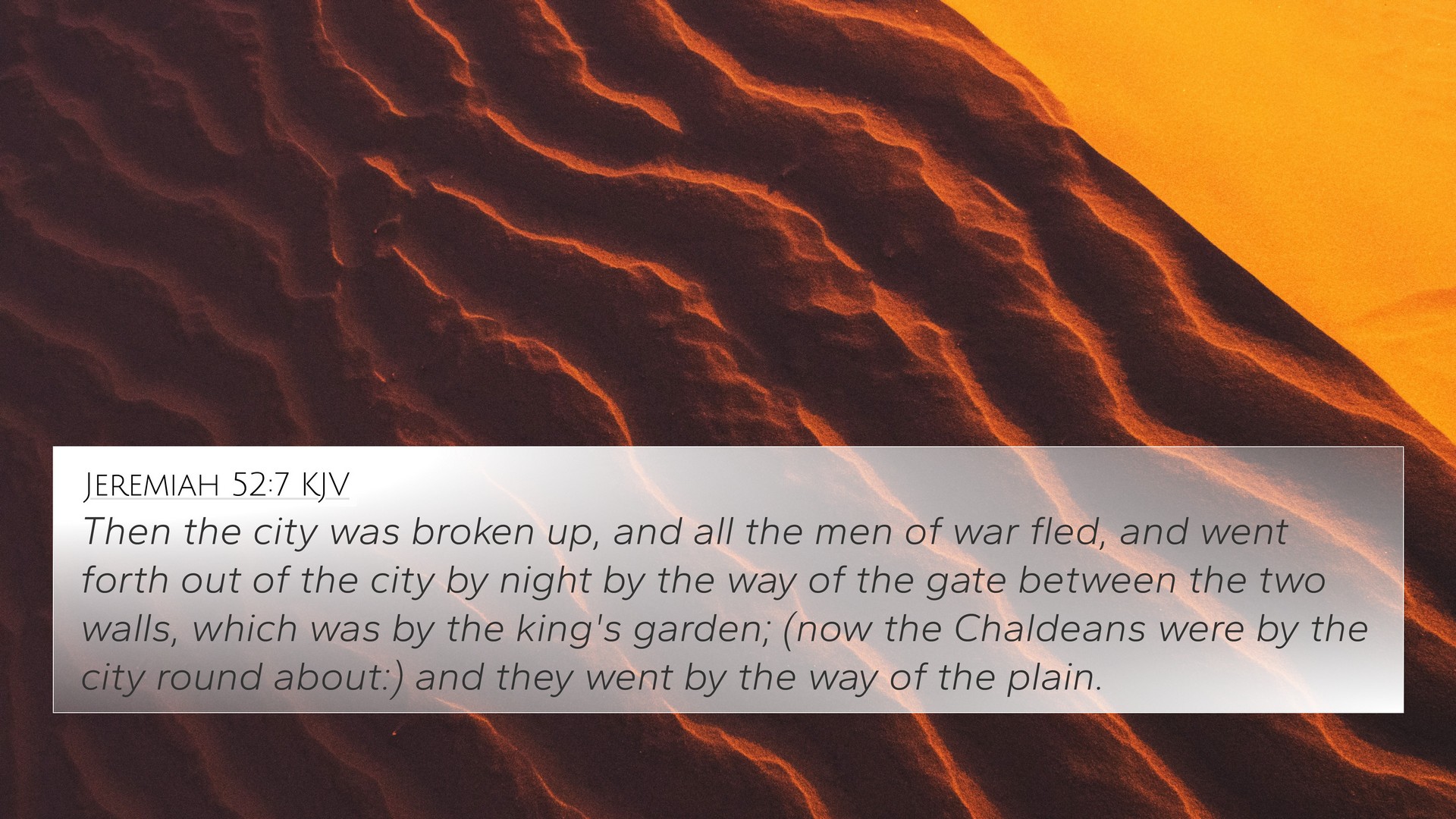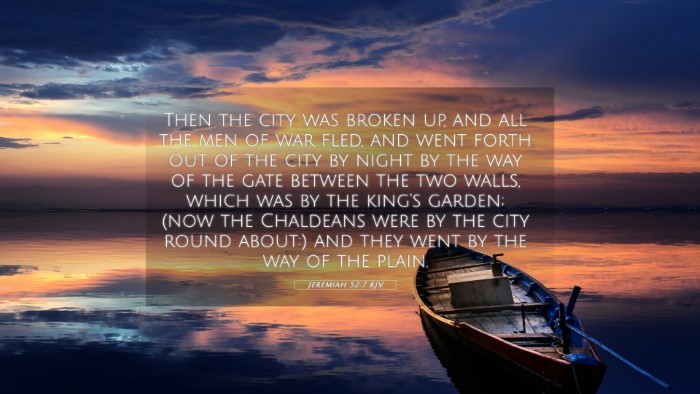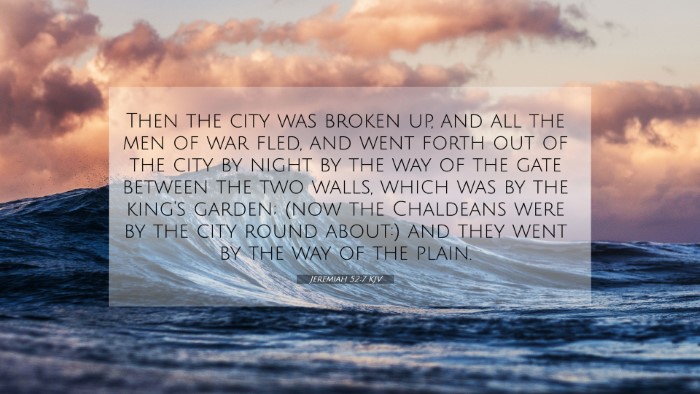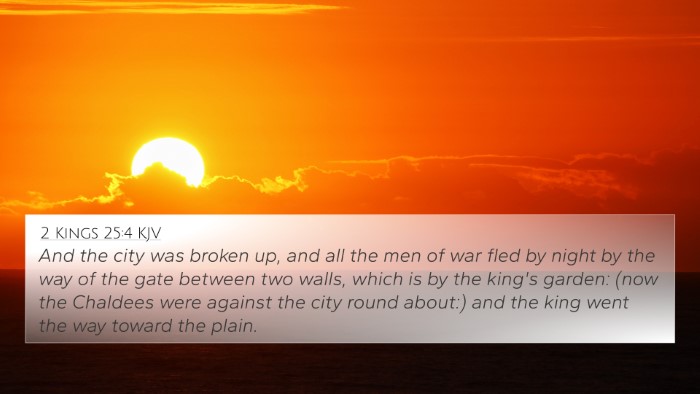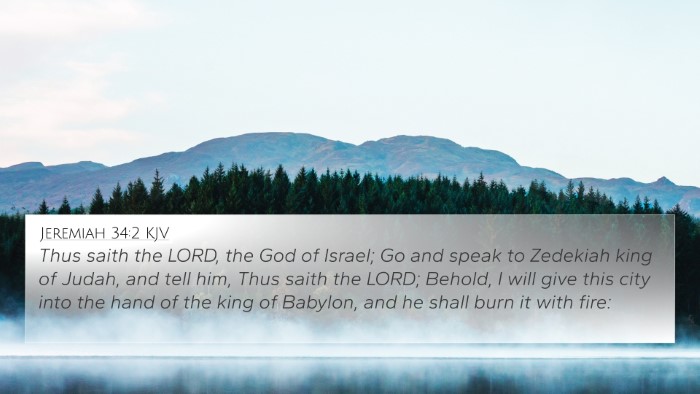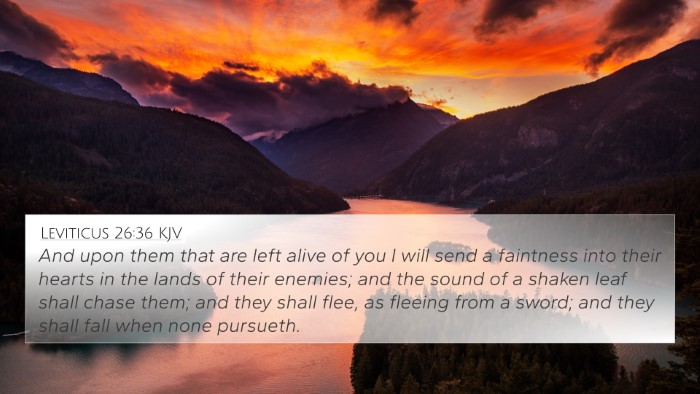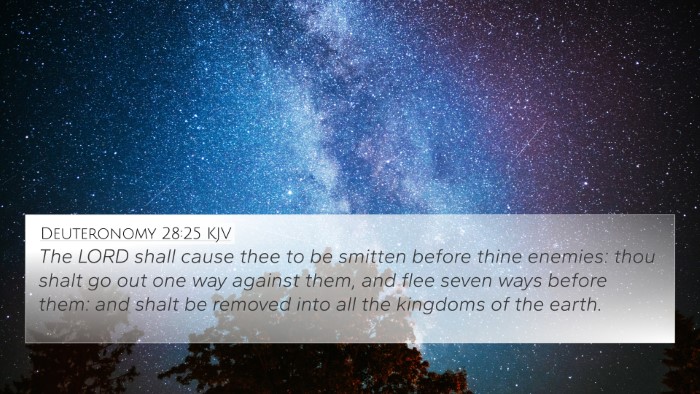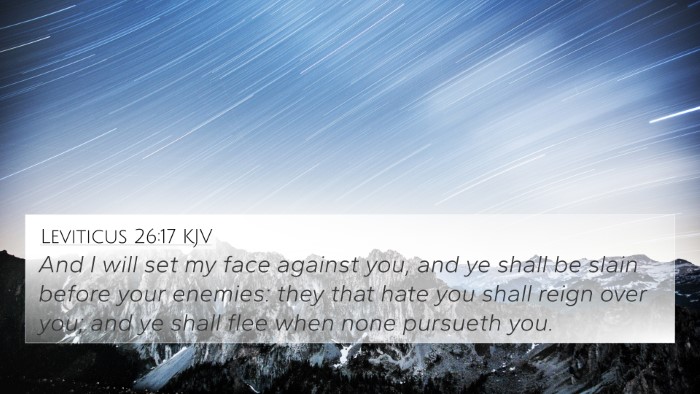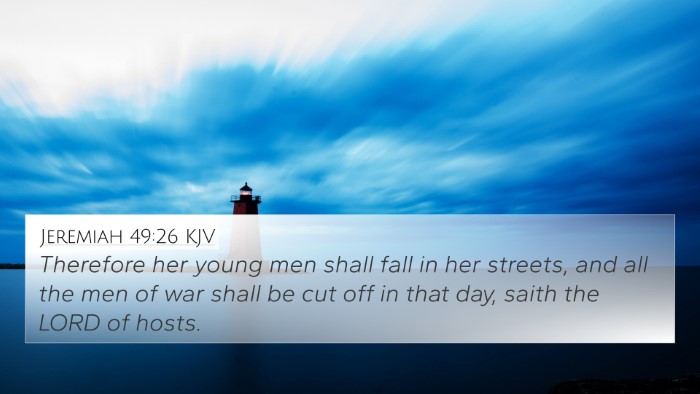Bible Verse Meaning: Jeremiah 52:7
Verse Reference: Jeremiah 52:7 states: "Then the city was broken up, and all the men of war fled, and went forth out of the city by night by the way of the gate between the two walls, which is by the king's garden; now the Chaldeans were by the city round about: and they went by the way of the plain."
Contextual Overview
This verse occurs towards the end of the Book of Jeremiah and captures a pivotal moment in the fall of Jerusalem. The context is crucial as it reflects not only the military defeat of the city but also the spiritual and prophetic implications that arise from this destruction.
Commentary Insights
Matthew Henry:
Henry emphasizes the despair of Jerusalem's fall, illustrating it as a divine judgment due to the persistent disobedience of the people. He notes that the flight of the soldiers signifies their recognition of an inevitable fate yet reiterates that God's purposes are fulfilled even amidst despair.
Albert Barnes:
Barnes notes the strategic retreat of the warriors during this siege, showcasing their fear and desperation. He underscores the prophetic dimension of this event, which was foretold by Jeremiah, and how the Chaldeans' siege aligns with God’s plan for Israel’s discipline and purification.
Adam Clarke:
Clarke offers an in-depth analysis of the geographical and tactical elements present in the verse. He explains the physical layout of the city and how it influenced the escape route chosen by the soldiers. Clarke highlights the inevitability of God’s judgment, reinforcing the notion that physical defeat was coupled with spiritual implications.
Thematic Connections
Jeremiah 52:7 can be thematically linked to various other Bible verses, enhancing our understanding of its significance:
- Jeremiah 39:4: Relates to the same event and further elucidates the circumstances of Jerusalem's fall.
- Lamentations 1:3: Captures the sadness of desolation and exile as a result of conquest.
- Ezekiel 12:13: Offers prophetic insight regarding the fate of those who attempt to escape captivity.
- 2 Kings 25:4-5: Provides a parallel account of the siege and capture of Jerusalem.
- Matthew 24:2: Jesus prophesies the destruction of the temple, drawing parallels with past judgments.
- Romans 11:22: Suggests the severity of God's judgment upon His people when they fail to remain faithful.
- Hebrews 12:6: Discusses God's discipline, which resonates with the themes of judgment present in Jeremiah.
Cross-Referencing Biblical Texts
Utilizing tools for Bible cross-referencing, one can explore the interconnectedness of themes present within scripture. To enhance understanding of Jeremiah 52:7, consider these cross-references:
- Deuteronomy 28:49-52: Prophecies of siege and captivity.
- Isaiah 39:6-7: Foretelling the Babylonian captivity.
- Daniel 1:1-2: Chronicles the outcomes of the siege and the fate of the captives.
- Revelation 18:2: Symbolic fall of Babylon represents eternal judgment and parallels earthly consequences.
- 1 Peter 4:17: Discusses judgment starting with the house of God, emphasizing accountability.
Understanding Through Cross-Referencing
When studying Jeremiah 52:7, employing a Bible cross-reference guide aids in identifying connections between Old and New Testament themes. For example:
- The Themes of Judgment: Draw connections from the consequences faced in Jeremiah to those warned of in the New Testament.
- Escape and Deliverance: Analyze how various narratives of escape from danger are presented throughout the scriptures.
- Divine Prophecies and Their Fulfillment: Look at how many prophecies resonate across different books, thus forming a cohesive understanding of God’s plan.
Conclusion
Jeremiah 52:7 serves as a poignant reminder of the cost of disobedience and the sovereignty of God over historical events. By engaging in cross-referencing biblical texts, we better understand this moment's theological depth and how it relates not just to past events but also our contemporary faith journey.
